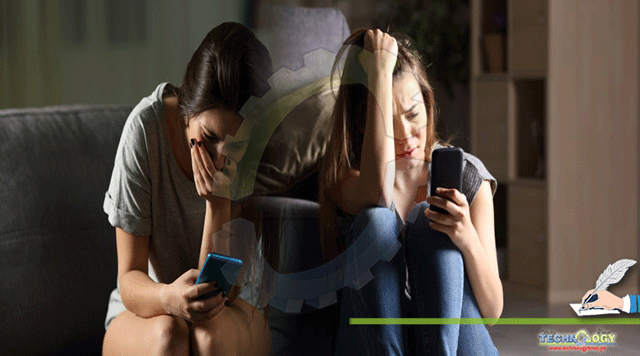Though the internet has primarily been a positive force for humanity, the instant connection has some downsides. One of these is cyberbullying, which almost everyone on the internet has experienced at one point or another. In fact, about 59% of teenagers have been cyberbullied, showing just how prevalent the issue is.

By Megan
Though cyberbullying is mainly thought of as an issue for children or teenagers, the fact is that anyone can be bullied online. Cyberbullying can occur in any digital platform, from social media to text messaging to email. Unfortunately, it has become so prevalent that most people just accept it as a normal facet of the internet.
Cyberbullying and online harassment can have some detrimental effects on one’s mental health and well-being. This article will explore the primary side effects and provide advice on dealing with cyberbullying. Additionally, if you’d like to explore more, BetterHelp has some very valuable articles, resources and suggestions on how to handle bullying and cyberbullying.
The Effects of Cyberbullying on Mental Health
Depression
Numerous studies have been conducted on the effects of cyberbullying with a clear pattern emerging: those who are cyberbullied are at an increased risk for depression. For example, a meta-analysis of 19 cyberbullying studies found that 14 of those studies cited depression as a significant side effect.
Furthermore, the National Institute of Health found that depression was reported more often in cyberbullied adolescents than those who were bullied traditionally. This could imply that cyberbullying has far more damaging effects on mental health and well-being.
Anxiety
Cyberbullying is a distressing event that can develop anxiety in those who are being bullied. The most common anxiety disorder that develops is social anxiety, which complicates the bullied person’s attempts are integrating into healthy social circles.
Therefore, the act of bullying and the resulting social anxiety can lead to loneliness. Being bullied can turn someone’s whole social life upside down. If others join in with the cyberbullying, the person bullied may develop a great sense of loneliness and isolation. In addition, the resulting social anxiety will make it difficult to develop relationships later on, even long after the bullying has ended.
Hostility/Anger
Those who are cyberbullied may become angry and hostile themselves. If they don’t restrain themselves, they may plan revenge or retaliate. The ease of the internet and the ability to remain anonymous makes retaliation incredibly easy. However, this may encourage a bully-victim cycle that is difficult to break. Often, the bullied person may become a cyberbully if they allow their aggression to take over.
Substance Use
An even more devastating side effect of cyberbullying is that it often leads to increased substance use in both adults and teens. Whether it’s alcohol, smoking, or drugs, many people turn to substance use either in adolescence or adulthood to cope with being bullied. Like the other factors in this list, substance use can continue well into adulthood, even if the cyberbullying occurred in youth.
How To Deal With Cyberbullying and Harassment
Online aggression is becoming an increasingly important problem. Though many people associate cyberbullying with adolescence, the truth is that harassment can happen at any age. The internet makes it too easy to harass someone with few consequences. Many forms of social media are being primarily used for people to let out their anger and hatred for others, leading to aggression and harassment issues.
Being bullied or harassed is never easy, and it is not always clear how you should deal with it. Here are some tips to help you deal with cyberbullying without affecting your mental health:
- Make your accounts more private
- Don’t retaliate; it will only create a toxic cycle of aggression
- Block the people harassing you
- Report any harassment to the social media platforms you use
- Tell the police about any serious threats to your safety
- If you are a child or teen, discuss the issue with an adult